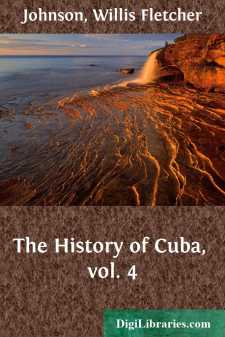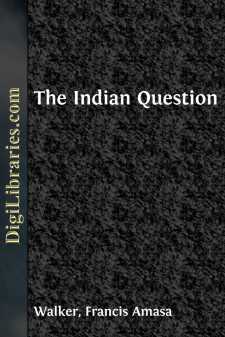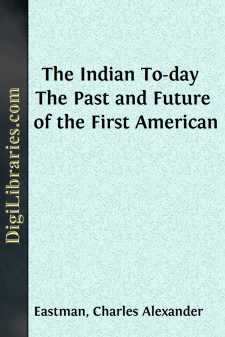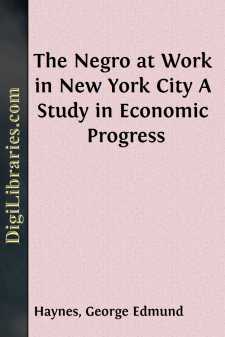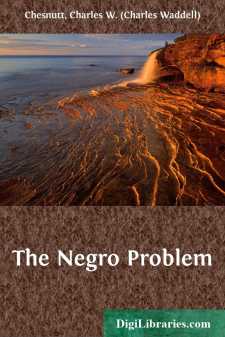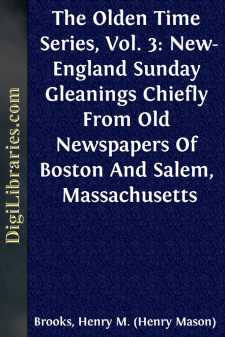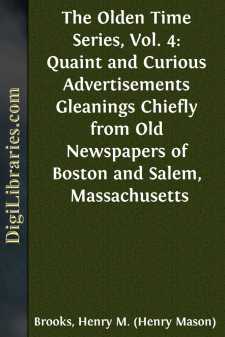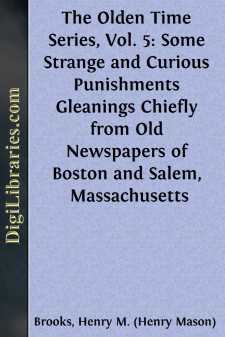History
- Africa 30
- Americas (North Central South West Indies)
- Ancient 68
- Asia 58
- Australia & New Zealand 8
- Canada 41
- Caribbean & West Indies 1
- Civilization 20
- Eastern Europe 12
- Europe 310
- Expeditions & Discoveries 60
- General 77
- Historical Geography 1
- Jewish 9
- Latin America 3
- Medieval 8
- Middle East 13
- Military 248
- Revolutionary 8
- Study & Teaching 5
- United States 353
- Western Europe 56
- World 13
Americas (North Central South West Indies) Books
Sort by:
CHAPTER I Cuba for Cuba must be the grateful theme of the present volume. We have seen the identification of the Queen of the Antilles with the Spanish discovery and conquest of America. We have traced the development of widespread international interests in that island, especially implicating the vital attention of at least four great powers. We have reviewed the origin and development of a peculiar...
more...
THE INDIAN QUESTION. On the 3d of March, 1871, Congress declared that "hereafter no Indian nation or tribe within the territory of the United States shall be acknowledged or recognized as an independent nation, tribe, or power, with whom the United States may contract by treaty." Brave words these would have seemed to good William Penn, treating with the Lenni Lenape, under the elm at...
more...
BIOGRAPHICAL NOTE The author of this book was born in a teepee of buffalo hide near Redwood Falls, Minn., during the winter of 1858. His father was a full-blooded Sioux called "Many Lightnings," (Tawakanhdeota). His mother, the granddaughter of Chief "Cloud Man" of the Sioux and daughter of a well-known army officer, died shortly after his birth. He was named Ohiyesa (The Winner). The...
more...
The most comprehensive and accurate map of Yucatan is that which has been copied for this pamphlet. In the several volumes of travel, descriptive of Maya ruins, are to be found plans more or less complete, intended to illustrate special journeys, but they are only partial in their treatment of this interesting country. The Plano de Yucatan, herewith presented—the work of Sr. Dn. Santiago Nigra de San...
more...
CHAPTER I HOW SLAVERY GREW IN AMERICA An English traveler, riding along the banks of the Potomac in mid-July, 1798, saw ahead of him on the road an old-fashioned chaise, its driver urging forward his slow horse with the whip, until a sharp cut made the beast swerve, and the chaise toppled over the bank, throwing out the driver and the young lady who was with him. The traveler—it was John Bernard, an...
more...
PREFACE This study was begun as one of the several researches of the Bureau of Social Research of the New York School of Philanthropy, largely at the suggestion of Dr. Samuel McCune Lindsay, the director, to whose interest, advice and sympathy its completion is largely due. Sincere thanks are due the Bureau for making the investigation possible. The material was gathered between January, 1909, and...
more...
Industrial Education for the Negro By BOOKER T. WASHINGTON, The necessity for the race's learning the difference between being worked and working. He would not confine the Negro to industrial life, but believes that the very best service which any one can render to what is called the "higher education" is to teach the present generation to work and save. This will create the wealth from...
more...
NEW-ENGLAND SUNDAY. Seeing in an old paper that General Washington was stopped by a "tythingman" in Connecticut in 1789 for the "crime" of riding on Sunday, we were naturally led to think about the "Sabbath question," as it is sometimes called. We find the account referred to in the "Columbian Centinel" for December, 1789. THE PRESIDENT AND THE TYTHINGMAN. The...
more...
CURIOUS ADVERTISEMENTS. Among the mass of advertisements that have appeared from time to time in newspapers are to be found some which are very quaint and curious. Such are not, in all cases, intended by the writers to be so; but they sound so, especially to those persons who have an ear for strange or humorous things. Sometimes, indeed, it is the intention of the writers to attract particular notice...
more...
SOME STRANGE AND CURIOUS PUNISHMENTS. In the month of January, 1761, "Joseph Bennett, John Jenkins, Owen McCarty, and John Wright were publickly whipt at the Cart's Tail thro' the City of New York for petty Larceny,"—so the newspaper account states,—"pursuant to Sentence inflicted on them by the Court of Quarter Sessions held last Week for the Trial of Robbers," etc. In...
more...


